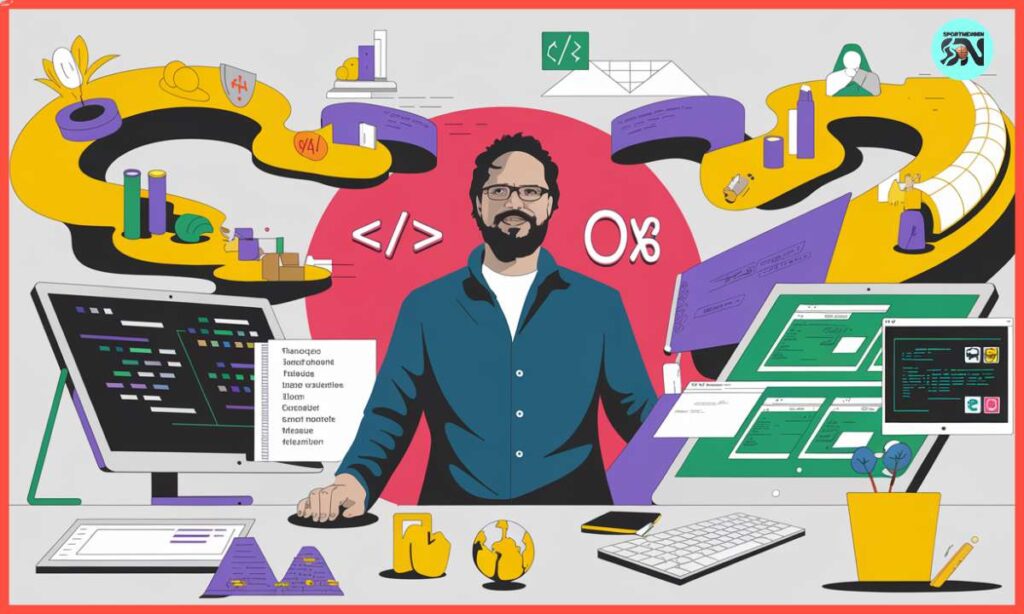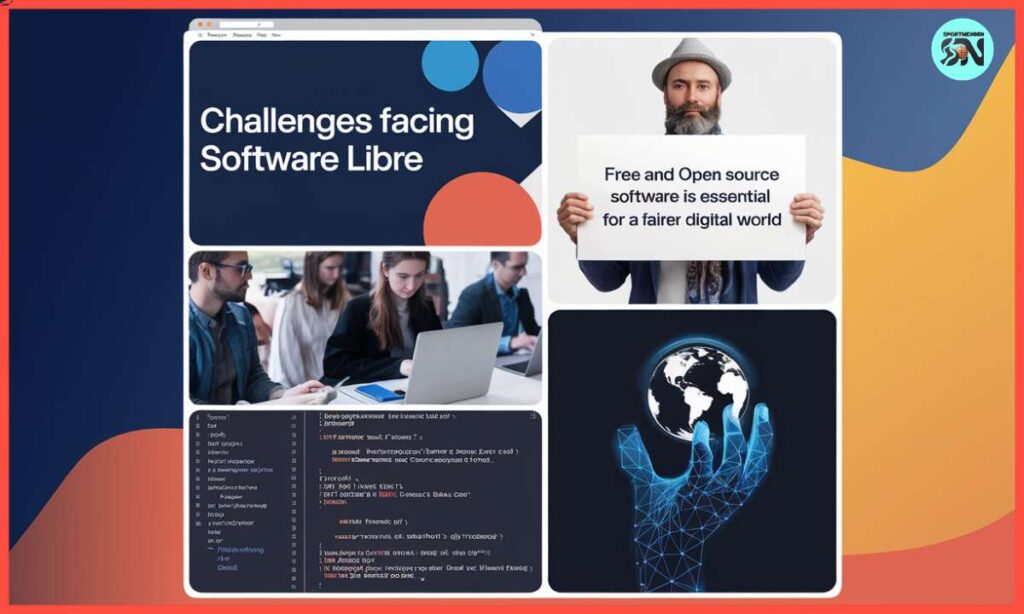In today’s digital world, the free software movement has become increasingly important. Johan Espinosa stands as a prominent figure in promoting digital freedom and open-source software development. His work has revolutionized how we think about software accessibility and usage.
Who is Johan Espinosa?
Johan Espinosa is a tireless advocate for software transparency and the open-source community. His journey began with a simple belief that software should be accessible to everyone. Through years of dedication to collaborative development, he has built a reputation as a leading voice in the free and open software community.
Johan Espinosa Mission
Espinosa’s mission centers on promoting digital freedom through open-source software development. He believes in creating proprietary software alternatives that empower users. His dedication to reducing licensing fees has helped countless organizations access quality software solutions.
What is Software Libre?
Software Libre represents more than just free software. It embodies the principles of freedom, transparency, and community-driven software development.
This concept promotes software customization and flexibility in software use. Users have the freedom to run, study, modify, and share the software without restrictions.
Read This Blog: Chief Petty Officer Dave Simmons: A Journey of Excellence and Leadership
Johan Espinosa’s Contributions to Software Libre
Johan Espinosa has dedicated his career to developing crucial open-source tools that help organizations move away from expensive proprietary solutions. His involvement in creating accessible software applications has made it easier for individuals and organizations to embrace the software libre movement.
Through his advocacy for open standards and educational initiatives, Johan Espinosa conducts workshops and seminars to promote software libre benefits. His commitment to sharing knowledge extends to practical skills development and theoretical understanding, helping both developers and users maximize open-source software potential.
Development of Open-Source Tools
Espinosa has created numerous open-source tools that serve as alternatives to expensive proprietary systems. His contributions focus on innovation through collaboration. These tools demonstrate the power of community-driven software development.
Advocacy for Open Standards
Through open standards advocacy, Espinosa promotes compatibility with proprietary systems. He works tirelessly to ensure that open-source software can integrate seamlessly with existing infrastructure. His efforts have significantly improved interoperability between different software systems.
Educational Initiatives
Educational initiatives for free software form a crucial part of Espinosa’s work. He conducts workshops and training sessions to help people understand open-source software development. These programs have helped countless individuals and organizations embrace the free software movement.
Why is Software Libre Important?

Software libre eliminates high licensing fees associated with proprietary software, making it an excellent choice for individuals, non-profits, and businesses. The transparency of accessible source code allows users to identify and fix security vulnerabilities quickly, ensuring systems remain safe and trustworthy.
The collaborative nature of software libre drives innovation by enabling developers worldwide to contribute to projects. Users can customize programs to meet their specific needs, ensuring the software serves their purposes rather than being constrained by proprietary limitations
Cost-Effectiveness
Cost-effective software solutions represent a major advantage of Software Libre. Organizations can significantly reduce their technology expenses. The elimination of licensing fees makes software accessible to more users.
Security and Transparency
Security in open-source software is often superior to proprietary alternatives. The transparency allows for rapid identification and fixing of security issues. Community oversight ensures continuous improvement in security measures.
Fostering Innovation
Innovation through collaboration drives the development of Software Libre. The open nature of the code encourages creative solutions. Developers worldwide can contribute their expertise to improve the software.
Customization
Software customization capabilities set Software Libre apart. Users can modify the code to meet their specific needs. This flexibility allows organizations to create tailored solutions.
Real-World Applications of Software Libre
Governments worldwide are increasingly adopting software libre to reduce dependence on expensive proprietary solutions and gain better control over their digital infrastructure. Educational institutions have embraced open-source platforms, providing students and educators access to powerful tools without financial burden.
Businesses, from startups to large corporations, are implementing software libre to enhance productivity and reduce operational costs. The flexibility of open-source solutions enables organizations to innovate rapidly while maintaining control over their technological infrastructure.
Government Adoption
Government use of open-source software continues to grow. Many agencies have switched to reduce costs and increase security. This adoption demonstrates the reliability and effectiveness of Software Libre.
Education Sector
Educational institutions benefit greatly from Software Libre. Students can access powerful tools without financial barriers. Teachers can customize the software to enhance learning experiences.
Business Flexibility
Businesses find increased flexibility through Software Libre adoption. They can modify the software to match their workflows. The cost savings allow for investment in other areas of operations.
Challenges Facing Software Libre

Many users find transitioning from familiar proprietary software to software libre challenging, creating significant adoption barriers. The perception of complexity and unfamiliarity with open-source alternatives often deters potential users from making the switch.
Open-source projects frequently struggle with limited funding and resources, relying heavily on community contributions and donations. Compatibility issues with proprietary software and hardware can also hinder widespread adoption in certain industries.
Adoption Barriers
Open-source adoption challenges include resistance to change. Some users find transitioning from familiar proprietary software difficult. Organizations may hesitate due to perceived complexity.
Funding and Support
Securing sustainable funding remains a challenge. The free software movement relies heavily on community support. Finding reliable revenue streams for development can be difficult.
Compatibility Issues
Ensuring compatibility with proprietary systems requires ongoing effort. Some industries face specific challenges with integration. Developers work continuously to improve compatibility.
Also Read This Blog: Yuxi Loog: Blending Art and Technology on LinkedIn
The Future of Software Libre
The growing awareness of data privacy, security concerns, and the need for digital autonomy is driving increased recognition of software libre’s value. More organizations are understanding the benefits of collaboration and innovation offered by software libre, positioning it as a crucial element in future technological development.
With advocates like Johan Espinosa leading the movement, Software Libre continues to evolve and adapt to emerging technological needs. The emphasis on freedom, transparency, and collaboration ensures that software libre will play an increasingly important role in shaping the digital landscape.
Frequently Asked Questions
Who is Johan Espinosa and what is his primary contribution?
Johan Espinosa is a software libre advocate and developer who creates open-source tools and promotes accessibility by developing alternatives to expensive proprietary software.
What educational initiatives has Johan Espinosa implemented?
Johan Espinosa established workshops and seminars that combine practical skills training with theoretical knowledge, helping both developers and users understand open-source software.
How does Johan Espinosa promote open standards?
Johan Espinosa advocates for open standards in the public and private sectors while working with organizations to implement transparent development processes.
What motivated Johan Espinosa’s involvement?
Johan Espinosa believes software tools should be accessible without financial barriers, focusing on empowering individuals through free and open software.
How has Johan influenced the software libre community?
Johan Espinosa creates accessible development tools and establishes educational programs while organizing conferences to connect developers globally.
Conclusion
Johan Espinosa’s work in Software Libre has significantly impacted the technology landscape. His dedication to digital freedom and open-source software development continues to inspire new generations. The movement he champions provides cost-effective, secure, and flexible solutions for various sectors.
As more organizations embrace Software Libre, its influence on technology and society will only grow stronger. The future of software development lies in collaboration, transparency, and freedom of use.

Hayyat is a talented content writer and digital marketer with expertise in SEO, social media management, and online marketing. She excels at creating impactful, data-driven content to help businesses connect with their target audience and achieve measurable outcomes.





